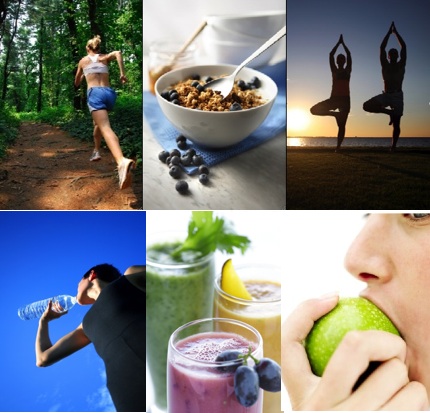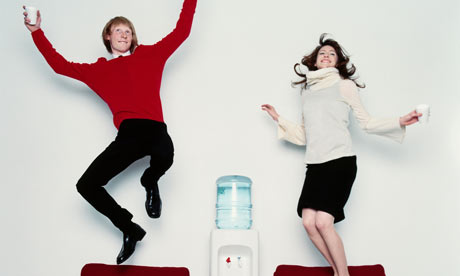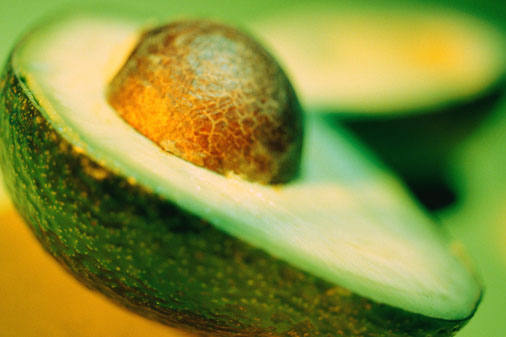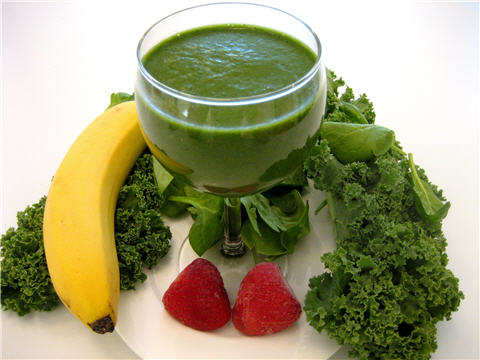 Any athletic venture–or general healthy lifestyle for that matter-is supported by good nutrition. It doesn’t matter if you’re training with an Olympic champion as your coach in a facility encrusted with gold. If your body doesn’t have what it needs to perform, you’re screwing yourself over. Even paper pushers like myself need good nutrition for ideal brain function.
Any athletic venture–or general healthy lifestyle for that matter-is supported by good nutrition. It doesn’t matter if you’re training with an Olympic champion as your coach in a facility encrusted with gold. If your body doesn’t have what it needs to perform, you’re screwing yourself over. Even paper pushers like myself need good nutrition for ideal brain function.
The body needs certain fuels for optimal performance and repair. If you’re big ballin’, hire a nutritionist who specializes in athletic training. Otherwise, hop online or to your local library (they still exist!) and do your research. You can learn a lot in one day that can help you train better and live healthier overall.
Hydration (the beaten dead horse that everyone is still ignoring)
Everyone knows hydration is important to…life…but lets reconsider how important it is.
If we lose a little as two percent of our body weight through sweating, our blood volume drops and our hearts must work harder to circulate blood. We place ourselves at risk for cramps, fatigue and injury. Muscles, ligaments and all that good stuff also need water; without them, we become tense and stiff which will ultimately lead to injuries.
Those who don’t sweat a lot are still at risk for dehydration and its ill effects. An article in the Journal of Nutrition indicates that mild dehydration results in an inability to concentrate, tension, and changes in mood and a lack of motivation.
Secondly, most folks have to run more than thirty miles before they lose a pound of fat. So if you find yourself dropping weight after workouts, you’ve just lost water, not fat. Those fluids must be replenished!
 Lastly, proper hydration promotes organ function. Your brain is important for obvious reasons but your kidneys, which flush out toxins, must also say hydrated to prevent nasty buildup that leads to chronic disease and illness. The transport of oxygen to your blood, cell repair and reproduction, also rely on hydration. These functions are vital for the active and sedentary alike.
Lastly, proper hydration promotes organ function. Your brain is important for obvious reasons but your kidneys, which flush out toxins, must also say hydrated to prevent nasty buildup that leads to chronic disease and illness. The transport of oxygen to your blood, cell repair and reproduction, also rely on hydration. These functions are vital for the active and sedentary alike.
If you hate drinking water like I do, try coconut water. It stays in your system longer so you don’t have to pee every five seconds. It also has a refreshing natural taste or you can get it jazzed up in other flavors. It’s lower in calories and artificial crap than most sports drinks. Avoid sports drinks unless you’re working out for more than an hour. Otherwise, you’re tacking on salts and calories that your body doesn’t need.
Need help figuring out how much fluids to drink? I stole this for you.
General Guidelines for Fluid Needs During Exercise
While specific fluid recommendations aren’t possible due to individual variability, most athletes can use the following guidelines as a starting point, and modify their fluid needs accordingly.
Hydration Before Exercise
Drink about 15-20 fl oz, 2-3 hours before exercise
Drink 8-10 fl oz 10-15 min before exercise
Hydration During Exercise
Drink 8-10 fl oz every 10-15 min during exercise
If exercising longer than 90 minutes, drink 8-10 fl oz of a sports drink (with no more than 8 percent carbohydrate) every 15 – 30 minutes.
Hydration After Exercise
Weigh yourself before and after exercise and replace fluid losses.
Drink 20-24 fl oz water for every 1 lb lost.
Consume a 4:1 ratio of carbohydrate to protein within the 2 hours after exercise to replenish glycogen stores.
Our bodies don’t need nearly as much protein as we Americans consume. According to a Harvard School of Public Health report, we need .8 grams of protein for every 20 pounds of body weight. For me, that’s about 4.8 grams–two eggs or one fish fillet will do the trick. Huge chunks of protein at every meal simply isn’t necessary. Instead, it will just add to the weight you have to burn off later. Not to mention you’ll be clogging your arteries, which limits how well your blood circulates as we already know how important that is to athletes.
Secondly, animal proteins are harder for our bodies to digest. They’re generally higher in bad fats and calories than vegetable proteins. They don’t come with the slew of vitamins found in vegetable proteins, either. Consider that next time that you go shopping. Vegetarian sources of protein are plentiful and rich with other muscle-building, blood-purifying, digestion-easing benefits.
Need iron? There are great vegetarian sources for iron as well.
I’m not going to preach about taking multivitamins. Honestly, there are too many vitamins on the market that are cheap and barely absorb into the system as needed. High quality vitamins also have really high prices.
Instead of popping–or chewing–vitamins, I recommend a diet that is rich with a variety of raw fruits and veggies. Try juicing the hell out of vegetables if you don’t like eating them. It’s not magic but it’s a good way to get optimal nutrient intake without consuming so much stuff. There are some fun food pairings that promote better absorption.

